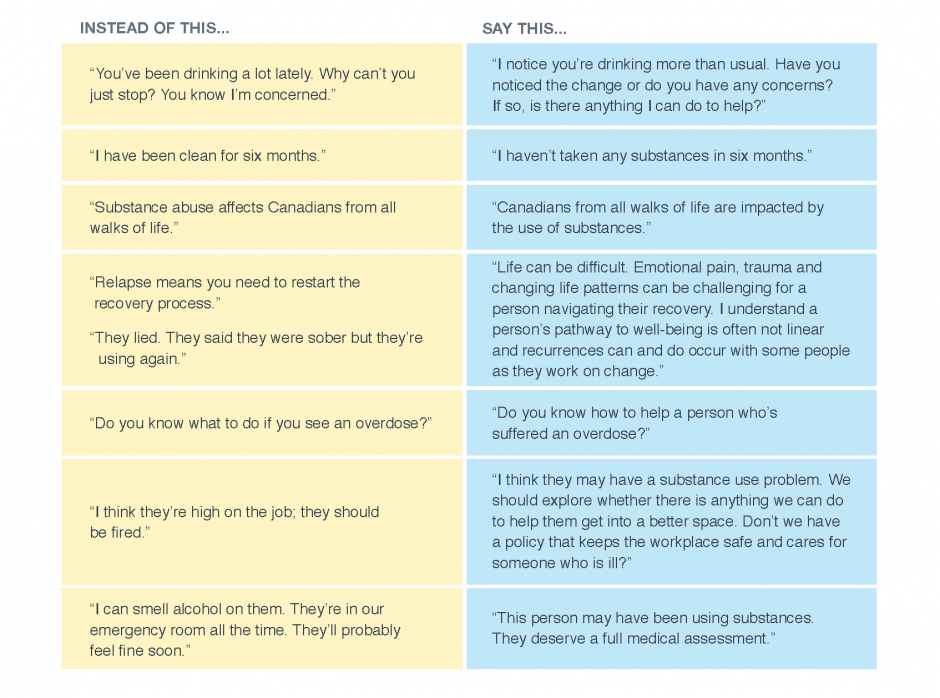By: Tanisse Teale, BSc, Masters student in Neuroscience at the University of British Columbia

The power of language to describe our personal identities (such as gender and sexuality) has become an incredible tool within our culture today. With the ability to express individuality, we can use language to describe how we know ourselves and how we want others to perceive us. However, this incredible power of language can have negative consequences too, whether we realize it or not.
Addiction used to be viewed as a moral failing, a lack of willpower, or an overall character flaw, but we have come a long way; now, it is depicted as a chronic, treatable disorder. Still, we have not yet made the same significant strides regarding the language used to describe individuals with addictions. The Diagnostic and Statistical Manual of Mental Disorders describes those with substance addictions as having a “substance use disorder.” Yet, despite this, scientific journals, news articles, song lyrics, movies and many more methods of entertainment and communication still use stigmatizing language like “addict,” “drug abuser,” “junkie,” “drunk,” and “crackhead.” These harmful descriptors contribute to a negative narrative that perpetuates addiction as a choice and results from moral failings. Additionally, this stigmatization leads to fear of discrimination and negative repercussions that may delay an individual from seeking help or treatment. Shifting our language to include the person-first language of addiction emphasizes the medical nature of the disorder, which encourages treatment optimism, hope for recovery, and reduced blame. The progressions made in identifying addiction as a disorder instead of a moral failing should be met with the same advances in the language used to describe it.
In light of National Addictions Awareness Week, it is essential to recognize the prevalence of addictions in our society and the need to support those affected. Approximately 6 million people in Canada will meet the criteria for addiction once in their lifetime, meaning that almost all Canadians will know of someone impacted by this disease. Yet the stigmatization of addiction has led to implicit cognitive biases that are reinforced when we use harmful and stigmatizing descriptors. Evolving the language we use to reflect the ever-progressing scientific understanding of addiction has never been so important. To help promote change in our language, the Canadian Centre for Substance Use and Addiction (CCSA) and the Community Addiction Peer Support Association (CAPSA) have created a primer that encourages conversation and increases awareness of stigmatization’s harms. Here are a few of their suggestions for changing our language:
Language is not the only way you can reduce the stigmatization of addiction. Here are a few additional ways you can contribute:
- Educate yourself
- Be aware of your own judgements and biases
- Educate others
- Offer support and community to those impacted by the disorder.
For more information on addiction and stigmatization, here are some resources:
Addiction: https://www.camh.ca/en/health-info/mental-illness-and-addiction-index/addiction
Stigma: https://www.ccsa.ca/stigma
National Addictions Awareness Week: https://www.ccsa.ca/national-addictions-awareness-week
If you are looking for addiction and mental health help here are free Canadian services:
Wellness Together Canada: 1-866-585-0445
- 24 hours
- Free service
- Service available in other languages
- Chat service
Kids Help Phone: 1-800-668-6868
- For youth
- 24 hours
- Chat service
